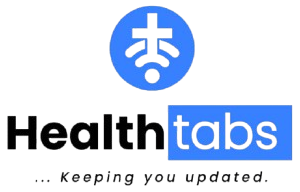The tragic passing of Sommie Maduagwu, a journalist with Arise Television, has sparked a national outcry. Reports claimed she was ‘rejected’ by a hospital after sustaining fatal injuries following fall from a storey building during a robbery incident. While her colleagues and the public were quick to condemn the unnamed hospital, this incident brought out the widespread misunderstanding of referral system in healthcare.
Contrary to popular belief, hospitals in Nigeria do not ‘reject’ patients. Rather, they refer them upward to facilities with the equipment and expertise needed to manage complex or life-threatening cases. In Sommie’s case, the hospital likely lacked the advanced trauma care her condition required and thus advised immediate transfer to a higher-level facility.
What a Referral System Means
A referral system is a structured process where patients are moved between levels of healthcare, which may be primary, secondary or tertiary level, for appropriate care. Referral ensures timely access to specialized services, optimizes scarce resources, and improves survival chances. It can be upward, downward or horizontal.
Upward referral happens when patients need advanced care that is unavailable at a lower-level hospital. Downward referral occurs when a patient’s condition stabilizes and they can return to a lower-level facility. Horizontal referral transfers patients between facilities at the same level, for services such as dialysis or physiotherapy, that may not be available at a facility.
Referral is not abandonment, it is a life-saving decision to connect patients to where they can receive the best possible care.
In trauma care like Sommie’s, the ‘golden hour’ is critical, while the golden hour was initially defined as a 60-minute period, the exact time period depends on the nature of the injury, so can be more than or less than an hour. It is significant because timely and appropriate treatment within the period improves patient outcome.
When hospitals without trauma units, neurosurgeons, or intensive care equipment receive critically injured patients, the safest option is referral. Delays or inadequate intervention within this golden window can worsen outcomes, regardless of where the patient first presented.
Challenges of the Referral System
Nigeria referral system faces several challenges which includes patient non-compliance, some patients or relatives refuse referral instructions mostly due to costs and distance. Missing referral letters or medical histories and long waiting time also complicate continuity of care at referral centres.
Misinformation in the media also pose a significant challenge. When referrals are mislabeled as rejections, public trust in the health system erodes, and doctors face unfair criticism. When media reports equate referral with rejection, they fuel anger against frontline healthcare workers who are trying to save lives within their limited capacity. This misinformation demoralizes health workers while also discouraging patients from following referral instructions, jeopardizing their survival in the process.
For the referral system to work, Nigeria needs public health education to help citizens understand that referral is not rejection but a life-saving pathway. There is also need for improved communication between hospitals for smooth transferring of patients transfer.
Healthcare facilities at the lower level of care need to be well-equipped to reduce avoidable referrals. Media organizations should also avoid mischaracterizing referral decisions in their reportage to avoid misinforming the populace on critical healthcare decisions.




